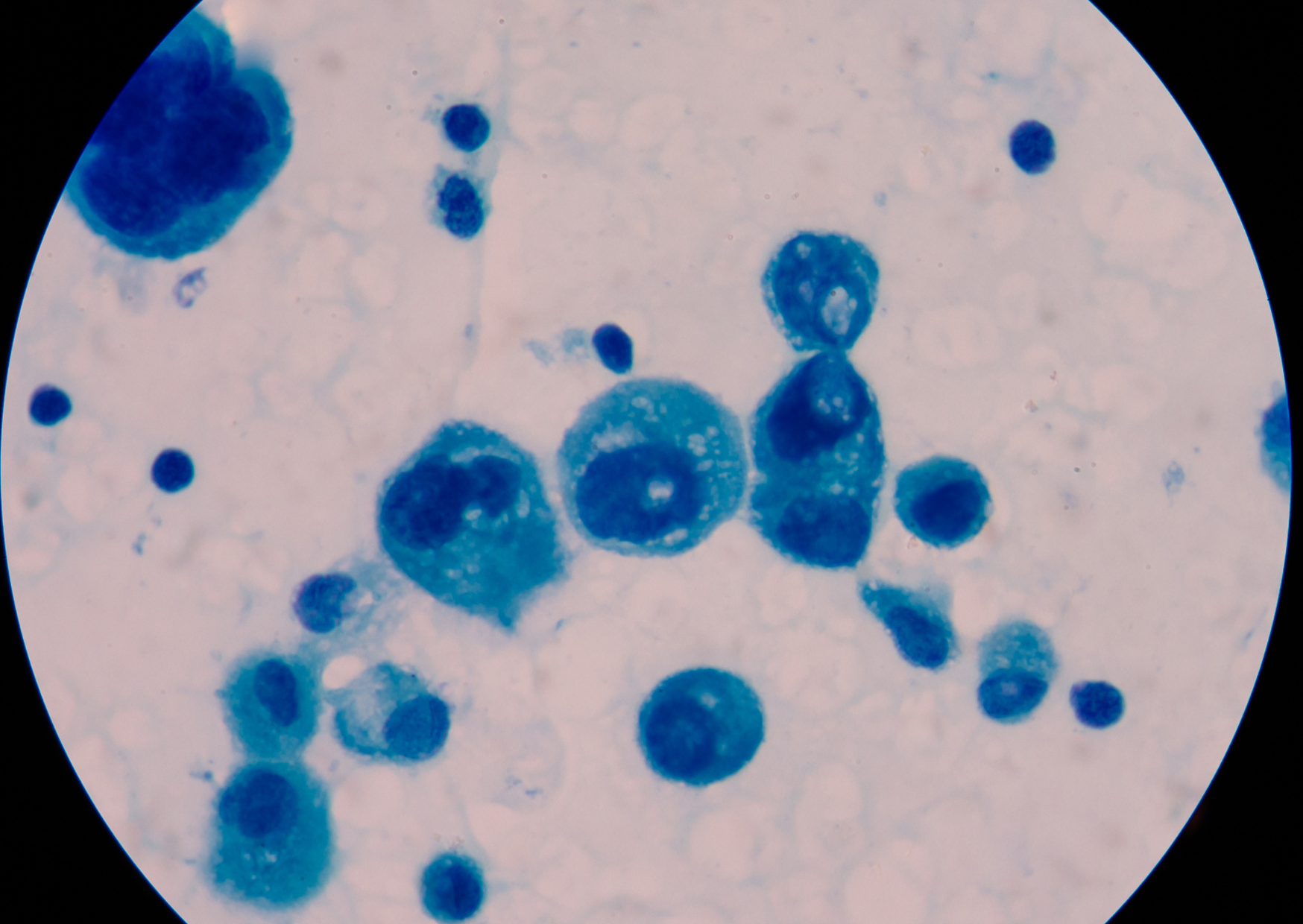How Mesothelioma Cell Heterogeneity Impacts Treatment Options
By Isabella Parise |
Mesothelioma is a rare and aggressive cancer primarily caused by asbestos exposure. Tumor sizes vary and often contain different types of cancer cells, known as mesothelioma cell heterogeneity. Learn more about how research on cell heterogeneity is paving the way for more personalized and effective care strategies.

What is Mesothelioma Cell Heterogeneity?
Mesothelioma is a rare and aggressive cancer most often caused by prolonged asbestos exposure. The disease primarily affects the inner lining of the lungs but can also spread to the lining of the abdomen, heart, and testes. Mesothelioma cell heterogeneity poses a significant challenge in the diagnosis and treatment of mesothelioma. Cell heterogeneity occurs when a single tumor contains multiple subpopulations of cells.
These varied cell populations grow at different rates, carry unique genetic and molecular profiles, respond differently to treatments, and may spread in distinct ways. This diversity makes it harder for doctors to predict how the disease will behave or which therapies will work best.
Understanding mesothelioma cell heterogeneity is essential to improving diagnosis, tailoring treatments, and ultimately enhancing patient outcomes. In this article, we’ll explore the different mesothelioma cell types, how heterogeneity contributes to treatment resistance, and how emerging research is shaping the future of mesothelioma care.
Why Cell Heterogeneity Matters for Mesothelioma Treatment
Mesothelioma cell heterogeneity refers to the presence of multiple cancer cell types within a single tumor. Each type has its biological behaviors, growth patterns, and responses to therapy. Common obstacles associated with cases of heterogeneous cells are treatment resistance, incomplete tumor reduction, and recurrence. There are three primary types of mesothelioma cells: epithelioid, sarcomatoid, and biphasic.
Epithelioid cells tend to respond better to chemotherapy and immunotherapy. They are also more commonly associated with longer survival rates. Sarcomatoid cells tend to be more aggressive and often resist conventional treatments. Biphasic mesothelioma, a mixture of both cell types, requires individualized approaches depending on the dominant cell subtype in your case.
Advances in tumor profiling and genetic analysis allow oncologists to alter treatment plans to be more effective for each patient. This personalized medicine approach improves treatment efficacy while reducing unnecessary side effects.
How Single-Cell RNA Sequencing Is Helping Researchers Understand Mesothelioma
Scientists are trying new technologies to better understand the biological complexity underlying mesothelioma cell heterogeneity. One new tool is single-cell RNA sequencing, a technological development that enables researchers to study the gene expression profiles of individual cells within the tumor rather than analyzing them in bulk. Taking a single-cell approach gives researchers a more detailed understanding of the cellular subpopulations that make up the tumor.
By isolating the RNA of single cancer cells, researchers can identify specific gene signatures that define the characteristics of cancer cells inside a tumor. Doctors use this to match patients with therapies that better suit their biological profile. Clinical research on single-cell RNA sequencing helps develop more precise and individualized treatment strategies for mesothelioma patients. Although research is ongoing, a deeper understanding of tumor makeup combined with new tools like RNA sequencing is one step closer to personalized medicine plans for each patient.
Personalized Support for Patients Navigating Mesothelioma Diagnoses
Understanding the role of cell heterogeneity in mesothelioma isn’t just important for doctors, it’s important for anyone effected by this disease. The more we learn about how different cell types influence treatment response, the more tailored and effective care can become and better our interactions with our physicians will be.
At the Lung Cancer Center, we’re here to help you and your loved ones make sense of the science and take action. Whether you’re facing a diagnosis of pleural or peritoneal mesothelioma, our team of patient advocates and legal professionals is ready to support you with compassion, knowledge, and resources.
If you’re exploring treatment options or wondering what recent clinical trials like single-cell RNA sequencing might mean for your case, we can help guide you. Contact us today to schedule a free case evaluation and take the first step toward personalized care and the compensation you may be entitled to.